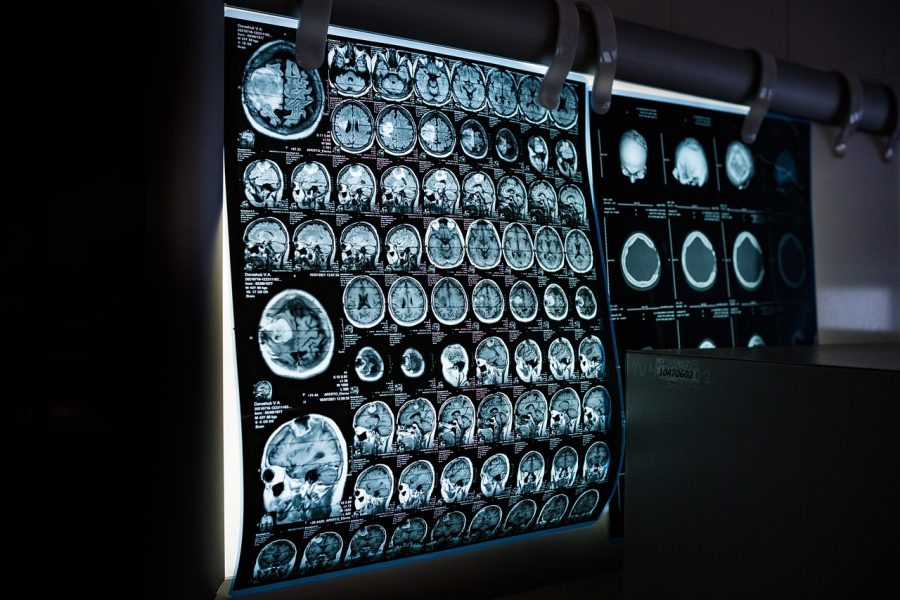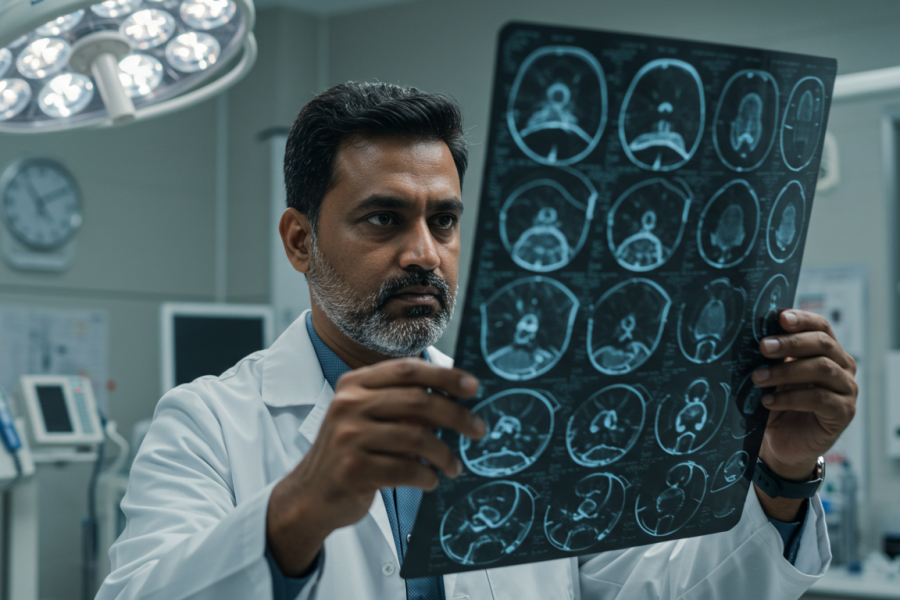Catching Things Early
Advanced diagnostic facilities leverage cutting‑edge medical imaging, comprehensive laboratory testing, and expert specialist consultations. This integrated approach enables early and accurate detection of a wide range of health conditions, ensuring patients receive the most precise, effective, and timely care possible.

Early Detection: Your key to a longer, healthier life
At First Health Check, we are firm believers that prevention is the foundation for a long and independent life. Our vision is to empower you to act sooner by providing the knowledge you need. The earliest stages of serious conditions like Coronary Heart Disease and Cancer often develop silently, and early detection is proven to be the most effective way to improve outcomes. Prevention is better than cure because sometimes, there is no cure.
Preventing Diseases Early. Importance of Proactive Screening
Lung Cancer: A Serious Concern
Lung cancer is a serious medical condition that can significantly impact the quality of a person’s life and longevity. Around 50,000 people develop lung cancer each year in the UK and It is the leading cause of cancer related deaths worldwide.
Risk Factors
- Smoking: The most significant risk factor for lung cancer. Quitting smoking at any time can considerably reduce your risk.
- Exposure to secondhand smoke: Even if you do not smoke, exposure to secondhand smoke can increase your risk.
- Exposure to radon: Exposure to naturally occurring radioactive gas radon can also increase the risk of lung cancer.
- Exposure to asbestos: Exposure to asbestos, particularly in occupational settings, is a known risk factor.
- Family history: Having a family history of lung cancer can increase your personal risk.
Symptoms
While early stage lung cancer often presents no symptoms, as the disease progresses, a person may experience:
- Persistent cough
- Shortness of breath
- Chest pain
- Wheezing
- Sudden weight loss
- Fatigue
Diagnosis
While an X-ray can generally detect tumours, a CT scanner is the most sensitive imaging tool for diagnosing lung cancer. Highly trained chest radiologists employ state‑of‑the‑art imaging technology to detect even the smallest tumours with exceptional precision, delivering results that are more accurate, reliable, and effective for early diagnosis and treatment planning.
Prevention

Coronary Heart Disease
Coronary Heart Disease (CHD) is a serious medical condition caused by the narrowing or blockage of the arteries that supply blood to the heart. This process can lead to a heart attack or other severe complications if left untreated.
What Causes CHD?
Atherosclerosis is the primary cause of CHD. It occurs when plaque builds up inside your arteries, making it difficult for blood to reach the heart. If this plaque ruptures, it can trigger blood clots that block blood flow entirely, potentially causing a heart attack. Through proactive screenings and a healthy lifestyle, these risks can be significantly reduced.
Risk Factors
A number of risk factors can significantly increase your vulnerability to CHD. These include:
- High blood pressure
- High cholesterol
- Diabetes
- Smoking
- Obesity
- Physical inactivity
- Family history
- Age (over 45 for men, over 55 for women)
Symptoms
While early-stage CHD often presents no symptoms, as the disease progresses, a person may experience:
- Chest pain or discomfort (angina)
- Shortness of breath
- Fatigue
- Sweating
- Nausea
- Light headedness
Diagnosis
Comprehensive assessments utilise a range of state‑of‑the‑art diagnostic tools. For instance, a CT coronary angiogram employs advanced 3D imaging to accurately visualise the arteries that supply blood to the heart, enabling precise evaluation of cardiovascular health and early detection of potential blockages.
Treatment
When Coronary Heart Disease is identified, treatment options vary based on the severity of the condition. While some cases require medical intervention, all treatments are aimed at improving blood flow to the heart and managing symptoms.
- Lifestyle changes: Adopting a healthier diet, exercising regularly, and quitting smoking.
- Medications: Taking prescribed medication for blood pressure, cholesterol, or blood thinning.
- Surgical procedures: In advanced cases, procedures like a balloon angioplasty or stent can be used to open blocked arteries.
Prevention
The most effective way to address CHD is through prevention. By being proactive with your health, you can significantly reduce your risk of developing the condition and its complications.
- Eat a healthy diet: Focus on a diet rich in fruits, vegetables, and whole grains.
- Exercise regularly: Regular physical activity strengthens your heart and improves circulation.
- Maintain a healthy weight: Keeping your body mass index (BMI) within a healthy range reduces strain on your heart.
- Quit smoking: This is one of the most significant steps you can take to prevent heart disease.
- Manage blood pressure and cholesterol: Regular full-body checks are key to monitoring and managing these risk factors.
Avoiding potential issues will not make them disappear, it will only make them worse.
A proactive assessment is your most powerful tool in mitigating future risks and taking control of your well-being.

What We Detect
We identify early signs of cancer and major disease through a tightly governed, consultant-led pathway. Over the course of three days in India, our clients receive head to toe 3 Tesla MRI, clinician indicated low dose chest CT, focused ultrasound and advanced blood panels that highlight actionable changes often before symptoms arise. All diagnostics are delivered by the BAPS YM Hospital medical team and GIC prime imaging centre, under rigorous quality assurance.
Cancers we screen for and risk stratify:
- Lung cancer with low dose CT interpreted by thoracic radiologists for smokers and non-smokers.
- Breast cancer using breast ultrasound and, where appropriate, MRI for dense tissue and higher risk profiles.
- Prostate cancer with PSA testing, urology review and multiparametric prostate MRI when indicated.
- Colorectal cancer via faecal testing with onward colonoscopy referral if required.
- Liver and pancreatic malignancy using abdominal MRI, ultrasound and tumour markers.
- Kidney and adrenal tumours with high resolution abdominal imaging.
- Thyroid cancer with neck ultrasound and thyroid function testing.
- Ovarian, uterine and cervical cancers using pelvic MRI, transvaginal ultrasound and HPV or CA 125 where appropriate.
- Testicular cancer with targeted scrotal ultrasound.
- Brain tumours with dedicated brain MRI.
Broader risks we evaluate:
- Cardiovascular disease including coronary risk, aortic aneurysm screening and carotid plaque assessment.
- Respiratory disease including COPD patterns, interstitial change and pulmonary nodule follow up.
- Digestive and liver conditions including fatty liver, gallstones, gastritis and pancreatic pathology.
- Endocrine and metabolic health including diabetes risk, thyroid disease, vitamin deficiencies and metabolic syndrome.
- Neurological findings such as silent stroke, white matter change and aneurysm screening when suitable.
- Musculoskeletal concerns including spinal disc disease and bone health issues.
Results are delivered within 72 hours in a consultant signed report with clear grading of risk, practical recommendations and UK follow up. For private multi cancer screening, this executive comprehensive assessment unites whole body MRI screening, low dose CT lung screening and comprehensive blood testing under one clinically assured programme.
How Advanced Diagnostic Screenings Detect Cancer
Cancer is detected early using a structured, evidence-based screening pathway designed to identify risks at the earliest possible stage, improving treatment options and patient outcomes. In three days, our private full body health check-up delivers insight far beyond routine testing in the UK. Using 3 Tesla MRI and targeted ultrasound with advanced blood tests, clinical examination and specialist consultations, our multi-cancer early detection programme is designed to identify up to nineteen forms of cancer alongside cardiovascular, respiratory and digestive disease risks.
Every stage is led by senior consultants under strict diagnostic safety and clinical oversight. Imaging follows protocol with whole body 3 Tesla MRI and targeted ultrasound, while blood panels include tumour markers such as PSA, CA 125 and CEA. Findings are issued in a structured, personalised report with risk assessment and an action plan.
Early detection saves lives, and timely clarity brings peace of mind. Our comprehensive cancer screening programme provides rapid results and consultant led follow-up with onward referral options.
